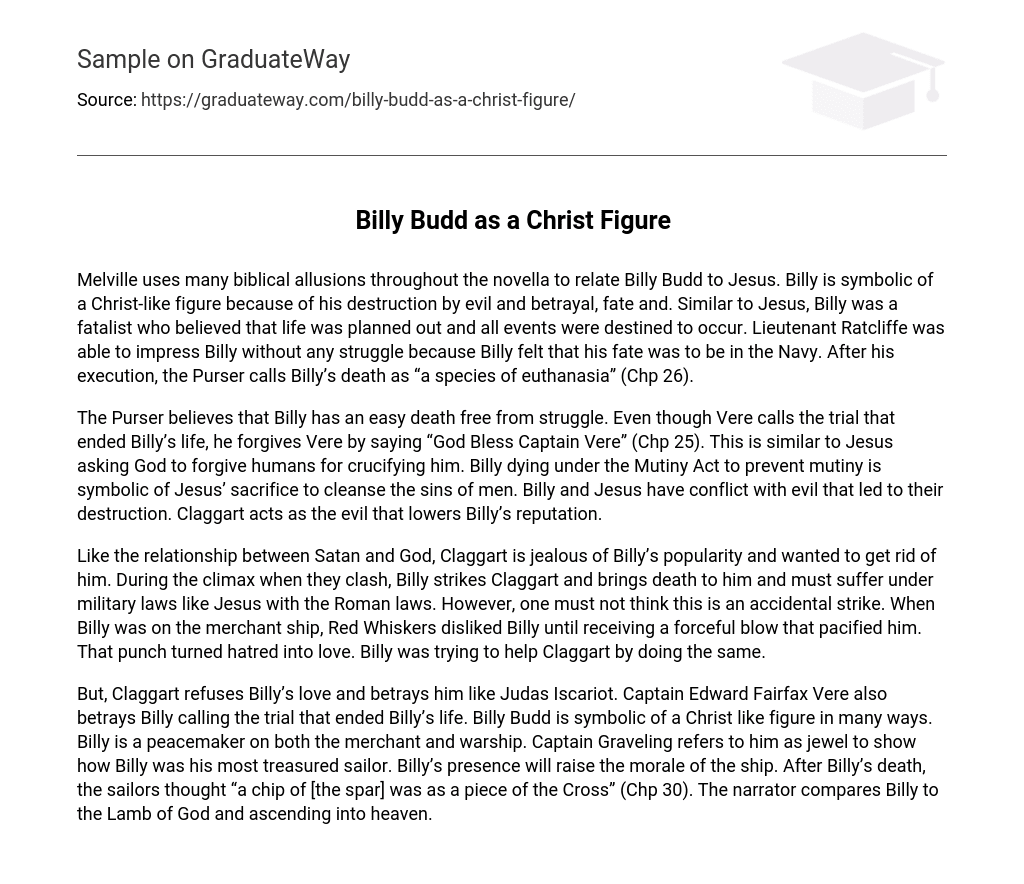Melville uses many biblical allusions throughout the novella to relate Billy Budd to Jesus. Billy is symbolic of a Christ-like figure because of his destruction by evil and betrayal, fate and. Similar to Jesus, Billy was a fatalist who believed that life was planned out and all events were destined to occur. Lieutenant Ratcliffe was able to impress Billy without any struggle because Billy felt that his fate was to be in the Navy. After his execution, the Purser calls Billy’s death as “a species of euthanasia” (Chp 26).
The Purser believes that Billy has an easy death free from struggle. Even though Vere calls the trial that ended Billy’s life, he forgives Vere by saying “God Bless Captain Vere” (Chp 25). This is similar to Jesus asking God to forgive humans for crucifying him. Billy dying under the Mutiny Act to prevent mutiny is symbolic of Jesus’ sacrifice to cleanse the sins of men. Billy and Jesus have conflict with evil that led to their destruction. Claggart acts as the evil that lowers Billy’s reputation.
Like the relationship between Satan and God, Claggart is jealous of Billy’s popularity and wanted to get rid of him. During the climax when they clash, Billy strikes Claggart and brings death to him and must suffer under military laws like Jesus with the Roman laws. However, one must not think this is an accidental strike. When Billy was on the merchant ship, Red Whiskers disliked Billy until receiving a forceful blow that pacified him. That punch turned hatred into love. Billy was trying to help Claggart by doing the same.
But, Claggart refuses Billy’s love and betrays him like Judas Iscariot. Captain Edward Fairfax Vere also betrays Billy calling the trial that ended Billy’s life. Billy Budd is symbolic of a Christ like figure in many ways. Billy is a peacemaker on both the merchant and warship. Captain Graveling refers to him as jewel to show how Billy was his most treasured sailor. Billy’s presence will raise the morale of the ship. After Billy’s death, the sailors thought “a chip of [the spar] was as a piece of the Cross” (Chp 30). The narrator compares Billy to the Lamb of God and ascending into heaven.





